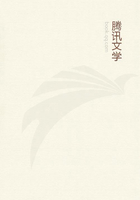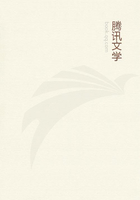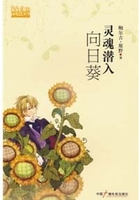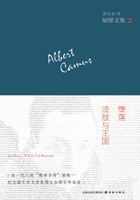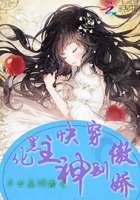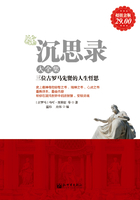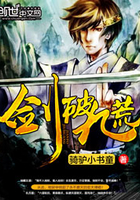THE TREE OF LIFE
Atheism denies knowledge of a God of any kind. Pantheism and Theism alike profess to give us a God, but they alike fail to perform what they have promised. We can know nothing of the God they offer us, for not even do they themselves profess that any of our senses can be cognisant [sic] of him. They tell us that he is a personal God, but that he has no material person. This is disguised Atheism. What we want is a Personal God, the glory of whose Presence can be made in part evident to our senses, though what we can realise [sic] is less than nothing in comparison with what we must leave for ever unimagined.
And truly such a God is not far from every one of us; for if we survey the broader and deeper currents of men's thoughts during the last three thousand years, we may observe two great and steady sets as having carried away with them the more eligible races of mankind. The one is a tendency from Polytheism to Monotheism; the other from Polytypism to Monotypism of the earliest forms of life-all animal and vegetable forms having at length come to be regarded as differentiations of a single substance-to wit, protoplasm.
No man does well so to kick against the pricks as to set himself against tendencies of such depth, strength, and permanence as this. If he is to be in harmony with the dominant opinion of his own and of many past ages, he will see a single God-impregnate substance as having been the parent from which all living forms have sprung. One spirit, and one form capable of such modification as its directing spirit shall think fit; one soul and one body, one God and one Life.
For the time has come when the two unities so painfully arrived at must be joined together as body and soul, and be seen not as two, but one. There is no living organism untenanted by the Spirit of God, nor any Spirit of God perceivable by man apart from organism embodying and expressing it. God and the Life of the World are like a mountain, which will present different aspects as we look at it from different sides, but which, when we have gone all round it, proves to be one only. God is the animal and vegetable world, and the animal and vegetable world is God.
I have repeatedly said that we ought to see all animal and vegetable life as uniting to form a single personality. I should perhaps explain this more fully, for the idea of a compound person is one which at first is not very easy to grasp, inasmuch as we are not conscious of any but our more superficial aspects, and have therefore until lately failed to understand that we are ourselves compound persons. I may perhaps be allowed to quote from an earlier work.
"Each cell in the human body is now admitted by physiologists to be a person with an intelligent soul, differing from our own more complex soul in degree and not in kind, and, like ourselves, being born, living, and dying. It would appear, then, as though 'we,' 'our souls,' or 'selves,' or 'personalities,' or by whatever name we may prefer to be called, are but the consensus and full- flowing stream of countless sensations and impulses on the part of our tributary souls or 'selves,' who probably no more know that we exist, and that they exist as a part of us, than a microscopic insect knows the results of spectrum analysis, or than an agricultural labourer [sic] knows the working of the British Constitution; and of whom we know no more than we do of the habits and feelings of some class widely separated from our own."-("Life and Habit," p. 110.)After which it became natural to ask the following question :-"Is it possible to avoid imagining that we may be ourselves atoms, undesignedly combining to form some vaster being, though we are utterly incapable of perceiving this being as a single individual, or of realising [sic] the scheme and scope of our own combination? And this, too, not a spiritual being, which, without matter or what we think matter of some sort, is as complete nonsense to us as though men bade us love and lean upon an intelligent vacuum, but a being with what is virtually flesh and blood and bones, with organs, senses, dimensions in some way analogous to our own, into some other part of which being at the time of our great change we must infallibly re-enter, starting clean anew, with bygones bygones, and no more ache for ever from age or antecedents.
"'An organic being,' writes Mr. Darwin, 'is a microcosm, a little universe, formed of a host of self-propagating organisms inconceivably minute and numerous as the stars in Heaven.' As these myriads of smaller organisms are parts and processes of us, so are we parts and processes of life at large."A tree is composed of a multitude of subordinate trees, each bud being a distinct individual. So coral polypes [sic] form a tree-like growth of animal life, with branches from which spring individual polypes [sic] that are connected by a common tissue and supported by a common skeleton. We have no difficulty in seeing a unity in multitude, and a multitude in unity here, because we can observe the wood and the gelatinous tissue connecting together all the individuals which compose either the tree or the mass of polypes [sic]. Yet the skeleton, whether of tree or of polype [sic], is inanimate; and the tissue, whether of bark or gelatine [sic], is only the matted roots of the individual buds; so that the outward and striking connection between the individuals is more delusive than real. The true connection is one which cannot be seen, and consists in the animation of each bud by a like spirit-in the community of soul, in "the voice of the Lord which maketh men to be of one mind in an house"-"to dwell together in unity"-to take what are practically identical views of things, and express themselves in concert under all circumstances. Provided this-the true unifier of organism-can be shown to exist, the absence of gross outward and visible but inanimate common skeleton is no bar to oneness of personality.

